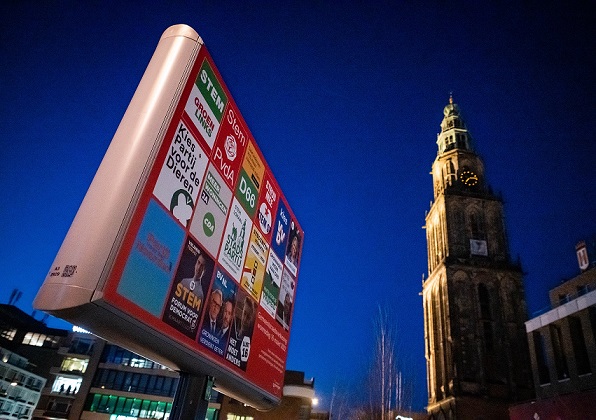Kiezers straffen lokale politici af voor corruptie, privé-schandalen en professioneel falen
Politieke partijen waarvan politici zich misdragen krijgen minder stemmen bij de daaropvolgende gemeenteraadsverkiezingen dan vergelijkbare partijen zonder incidenten. Zowel corruptie, privé-schandalen als professioneel falen wordt door kiezers afgestraft. In vergelijking met andere landen is de electorale afstraffing van corruptie in Nederland relatief zwaar. Dat concludeert Harm Rienks in zijn proefschrift. Hij promoveert 8 december aan de Rijksuniversiteit Groningen.
Rienks onderzocht in welke mate burgers gemeentebeleid kunnen beïnvloeden door te stemmen. Rienks toont aan dat politieke partijen die deelnemen aan het college van burgemeester en wethouders hierdoor gemiddeld stemmen verliezen. Dat effect is kleiner naarmate er meer partijen in het college zitten en is ook kleiner wanneer een partij meerdere opeenvolgende keren in het college zit.
Dat lijkt in lijn met de gedachte dat kiezers partijen deels verantwoordelijk houden voor het gevoerde beleid, stelt Rienks. Zijn bevindingen bevestigen dat Nederlandse gemeenteraadsverkiezingen veel meer zijn dan een peiling van de populariteit van partijen die in de Tweede Kamer zitten. Het zijn verkiezingen waarin partijen met elkaar concurreren en waarbij lokale overwegingen van belang zijn.
Rienks concludeert ook dat veranderingen in het gemeentebestuur niet leiden tot veranderingen in lokale belastingen. Een toename in het zetelaandeel van rechtse partijen leidt bijvoorbeeld niet tot lagere lokale belastingen. Een verrassend resultaat, stelt Rienks, omdat de wetenschappelijke theorie suggereert dat competitieve verkiezingen leiden tot responsief beleid.

Meer nieuws
-
14 februari 2026
Tumor weg, maar waar zijn de woorden?
-
10 februari 2026
‘Regeneratie begint waar moed en verbeeldingskracht samenkomen’
-
19 januari 2026
Digitalisering drijft kansarme burgers soms in het nauw
